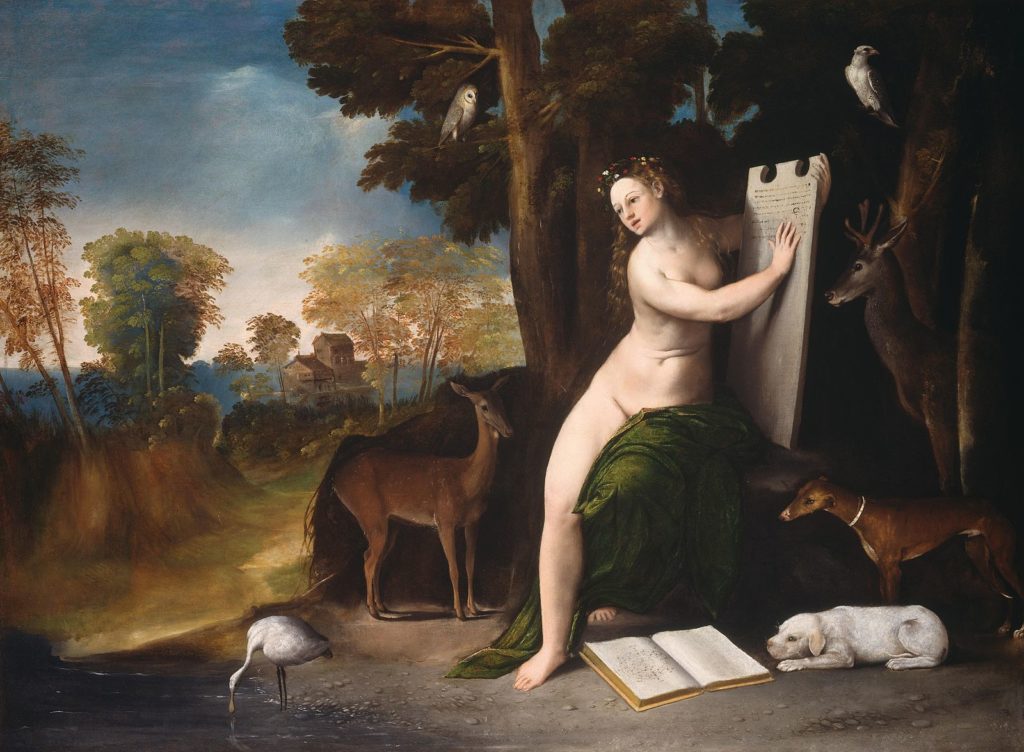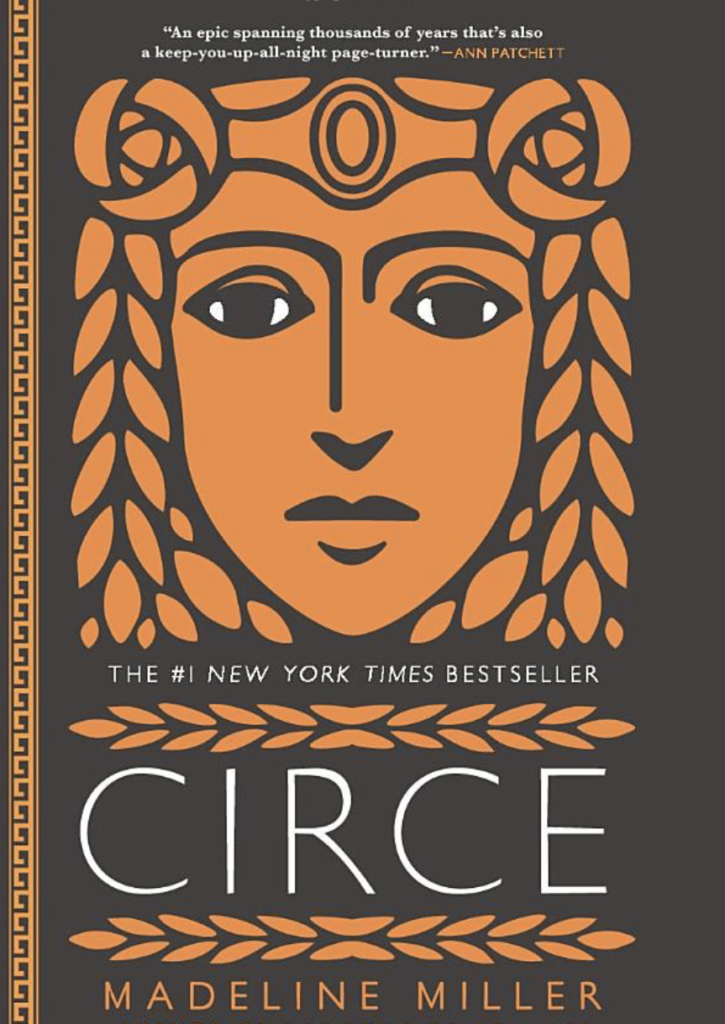
By P. F. Sommerfeldt –
I’ve always found the Homeric sorceress Circe in the Odyssey to be fascinating in her power that transcends the feminism of any era. Having looked at many artists over five hundred years in their attempts to depict Circe, I was generally frustrated with nearly all of them as too weak and cloying; from Allori in 1568 to Kaufmann in 1796 (by a woman) and Waterhouse in 1891 and 1892. In my own opinion as a woman, only Dossi circa 1515 comes close enough for me to presenting a powerful and immortal sorceress, maybe because she looks independently amoral and not the least bit intentionally seductive despite her near nudity. For the record, I’m not trained in Classics but in art and psychology, although I have taken a dozen postgrad classes in Classics and mythology at Stanford and my husband has taught and written about Greek mythology for years.

So it was with some surprise and complete captivation when I discovered Madeline Miller’s fantasy myth novel Circe (Back Bay / Little, Brown 2018), despite coming to it after so many others have read it before me and have raved about it for four years, which I now completely understand. This novel is simply a tour-de-force about a recreated world mythologers must acknowledge as the story-telling equal to Mary Renault and in some way ancient poets themselves who added mythical realism in their own way.
I was fascinated with how compelling Miller uses first person to develop how Circe’s own divine family treated her, ranging from jealousy to indifference to exploitative selfishness and revenge. The gods of Circe’s world usually had booming voices in the heavens or thunderings in the sea but their pettier actions were often more like knee-jerk reactions to whatever got in their way, like oversized humans with inordinate powers and bad tempers rather than possessing superhuman intellects and razor-sharp morals. Circe stands out from all others even though her own powers were either almost accidental and generally not used in revenge but in protective ways, although we have to wait a bit to see how Scylla received what she was due. These gods would destroy anything and anyone who displeased them. The creatures or animals and even mortal humans could be made to be tamed or wild or be merely pawns in the great schemes of the Gods.
Miller’s story follows Circe as she grows up with the Titan gods and sea divinities as her uncles and her seemingly -mispartnered parents, Perse the Nymph and Helios the Sun. She really isn’t liked by any of them. She has a thin voice – rather than a resonant one that echoes with divinity – which apparently is the voice that humans use. In early life Circe seemed to always be in the wrong place at the wrong time and really in the way she was not a child her parents were proud of, but ultimately they underestimated her. Circe is endearingly compassionate as she cares for others like Prometheus and ultimately the mortal genius Daedalus whom she came to love in Crete and of course the hero Odysseus himself, but her immortal family does not care for her, having banished her to become an outcast on her island forever. Even Hermes toys with her and Zeus fears her. Because she never ages, mortals are sadly like passing shadows.
Most of her island’s visitors are mortals, some sent by her relatives like her viperish sister Pasiphae, wife of Minos. One of my favorite episodes is in Knossos on Crete with the baby monster Minotaur and the inventor Daedalus. Perhaps the best part of Circe as told by Miller is when Circe is in love, generally tender and insightful however tragic. Her Odyssean narrative only borrows the bare bones of the Homeric epic but Miller’s details follow the arc of all the deep emotions and nuances her relatives seem not to possess. The greatest irony in the book to me is Miller’s own creation of how Circe sees the future and wishes to leave her immortality behind, tired of its endless predictability, and she wishes to become a mortal herself because of love. It’s almost as if Miller suspects the gods are incapable of love and Circe’s best magical gifts and transformative power are in the end profoundly focused on what she ultimately desires, the few things the gods cannot have: love and death.